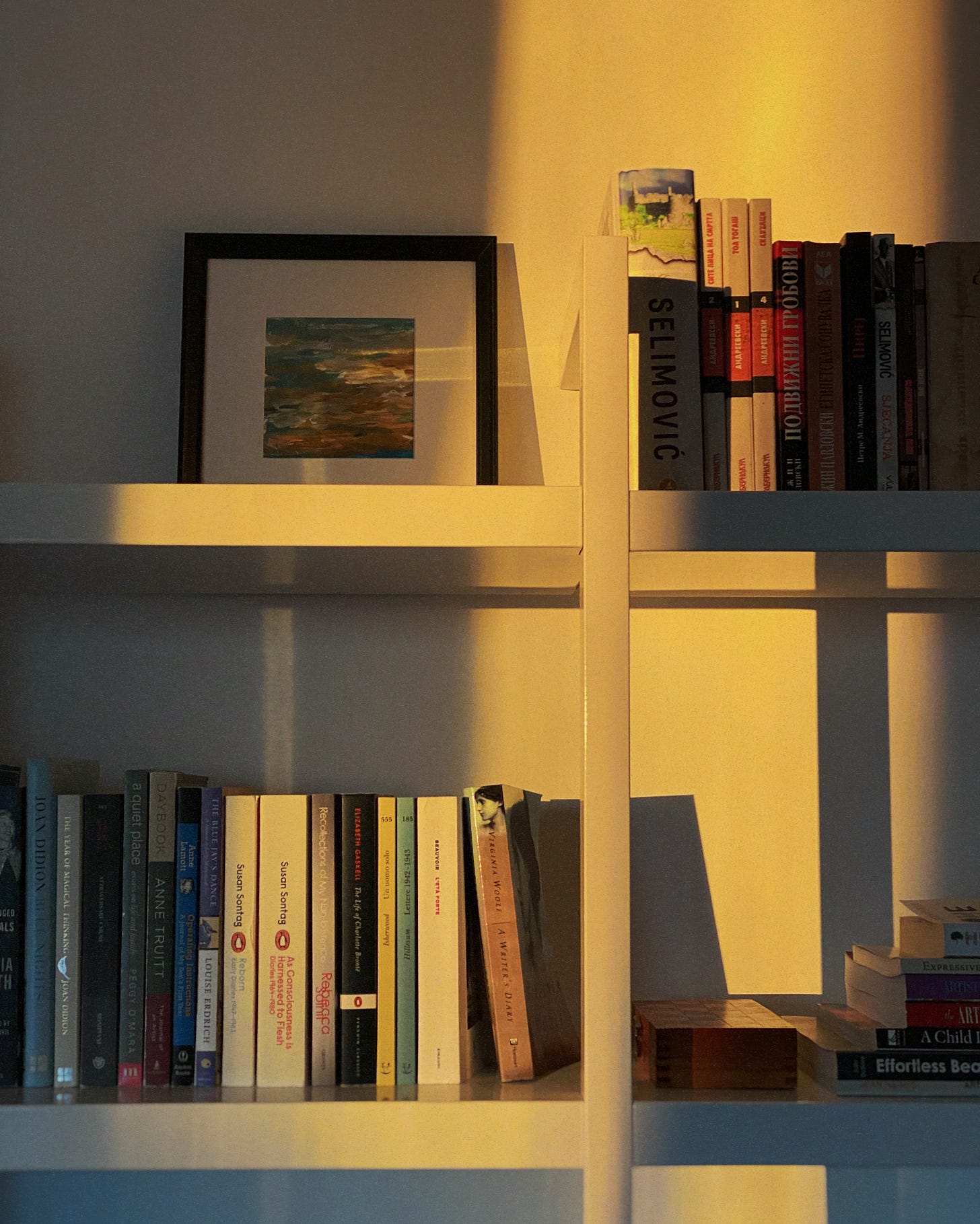Making room for the future
October's Letter
In October, we’ll indulge in some inspiring words.
How do you adjust to a new living situation? Probably by making time and space for it. As much as I’d like to maintain multiple letters per month, I can’t keep up right now. For the next few months, these letters will come to you monthly.
After the initial confusion, I’m getting better at navigating the different physical spaces I visit. The stress is easing, and moving around the city and through spacious buildings is becoming routine.
This month is for some beautiful words. Also, our virtual gatherings are back, and I’m excited to be hosting Clarity Pages twice this month.
There are many ways to start the day, but when you’re on holiday, those possibilities often become narrowed. You wake up, put on your bikini or mountain boots, eat something at the restaurant downstairs, and then spend the rest of your time sunbathing or hiking.
During one vacation a few years ago, while suffering from insomnia, I would get up very early in the morning and not know what to do with myself. I realized that going out while everyone was still asleep and doing something quiet and meditative would set a positive tone for the day. Since that holiday, I’ve made it a habit to wake up at 6 a.m., put on some comfy clothes, grab my pouch with the book I’m reading at the time, my journal, and my headphones, and quietly leave the room. I always manage to find a good spot to spend a couple of hours comfortably and undisturbed, and I spend my mornings at the same place. If I’m lucky, I’ll find a much-needed cup of espresso along the way. But most of the time, deserted cafés and barren doors greet me as I pass by.
During our last vacation, I brought Anne Morrow Lindbergh’s small hardcover Gift from the Sea. It didn’t disappoint—her poetic reflections on life flowed through the pages. Some passages resonated deeply with me, and I took notes inspired by Anne’s thoughts, which I’ll share here along with my own reflections for future reference.
Gift from the Sea is an account of Anne’s solitary stay on Florida's Captiva Island in the early 1950s. Lindbergh wrote this essay-style work by drawing inspiration from the shells she found on the beach.
‘Living in grace—shedding—multiplicity = distraction,’ says my note in response to the following passage:
Simplification of outward world is not enough. It is merely the outside. But I’m starting with the outside. I’m looking at the outside of a shell, the outside of my life - the shell. The complete answer is not to be found on the outside, in an outward mode of living. This is the only technique, a road to grace. The final answer, I know, is always the inside. But the outside can give a clue, can help one to find the inside answer. One is free like the hermit crab, to change one’s shell. Channeled whelk, I put you down again, but you have set my mind, on a journey, up an inwardly winding spiral staircase of thought.
’No single form of a relationship’, says another note later in the book.
One learns to accept the fact that no permanent return is possible to an old form of relationship; and, more deeply still, that there is no holding of a relationship to a single form. This is not tragedy but, par of the ever recurrent miracle of life and growth. All living relationships are in process of change, of expansion and must perpetually be building themselves new forms. But there is no single fixed form to express such a changing relationship.
‘New stage to fulfill the neglected side of one’s self’ sounds very optimistic and is a note I can’t omit following Anne’s reflection on middle age:
For is it not possible that middle age can be looked upon as a period of second flowering, second growth, even a kind of second adolescence? It is true that society in general does not help one accept this interpretation of the second half of life. And therefore this period of expanding is often tragically misunderstood. Many people never climb above the plateau of forty-to-fifty. The signs that presage growth, so similar, it seems to me, to those in early adolescence: discontent, restlessness, doubt, despair, longing, are interpreted falsely as signs of decay. In youth one does not as often misinterpret the signs; one accepts them, quite rightly, as growing pains. One takes them seriously, listen to them, follows where they lead. One is afraid. Naturally. Who is not afraid of pure space – that breathtaking empty space of an open door?
I warmly recommend this little book. Even though some reflections may seem a bit outdated (remember, Anne wrote these words in the early 1950s, when the role of women in society was different), there are still philosophical questions that remain difficult to grasp even today, despite the progress and changes in expectations that women's roles have undergone in the past decades.
October Gatherings
If you’re in the mood for good company and a journaling practice from the comfort of your armchair, join us for this month’s Clarity Pages. Paid subscribers will receive the meeting link the day before.



